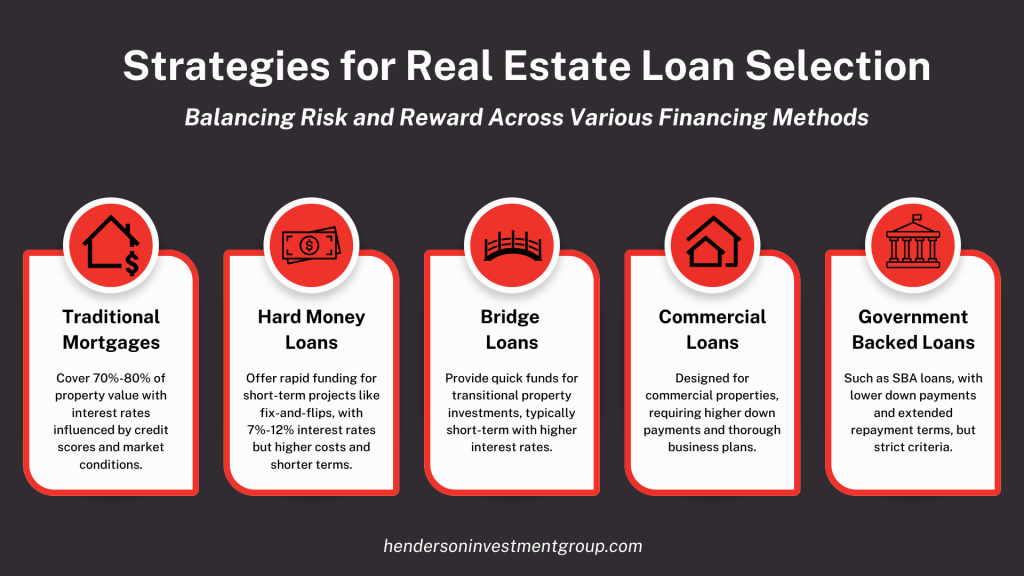Financial Planning and Budgeting For Investment Properties

Best Locations for Investment Properties (In Times of High-Interest Rates)
January 23, 2024
Investing in Real Estate Is Easier Than You Think
March 20, 2024Expert Tips & Tricks
The concept of cash flow in real estate extends well beyond mere profit calculation; it is a critical indicator of a property’s overall financial health. To understand this better, two key metrics are essential: Net Operating Income (NOI) and Cash Flow Before Taxes. NOI, which is determined by subtracting operating expenses from gross income, plays a vital role in evaluating the operating profitability of a property.
For example, consider a property that brings in an annual income of $250,000 and incurs operating expenses of $100,000. This results in a Net Operating Income (NOI) of $150,000. When calculating Cash Flow Before Taxes, this NOI is adjusted for any debt obligations, representing the real income that can be distributed to investors.
This two-fold method provides a detailed insight into the property’s financial performance, highlighting the critical role of maintaining a positive cash flow for the sustainability of the investment.
Key Financial Planning Considerations for Property Investments
Launching into real estate investment requires an extensive and detailed financial strategy centered on immediate costs and long-term financial obligations. This comprehensive planning ensures long-term success and profitability.
Here’s a streamlined approach to understanding the key financial elements:
- Initial Investment Strategy and Additional Expenses: A detailed financial plan goes beyond considering the purchase price. It includes a wide range of initial expenses, such as property inspection fees, vital for assessing the property’s condition and value. Furthermore, investors should account for closing costs, which typically range from 2% to 5% of the property’s purchase price.
- Managing Ongoing Monthly Expenses and Effective Budgeting: After acquiring a property, investors face various monthly expenses integral to the property’s operations. This includes mortgage payments, influenced by the loan terms, interest rates, purchase price, and property taxes, which average about 1.1% of the property’s assessed value but are subject to change based on local government assessments. Insurance costs also play a critical role, varying with the property’s location and risk factors. Utilities, involving services like water, electricity, and gas, and regular maintenance costs for repairs and landscaping, are additional expenses that need careful management.

Budgeting Techniques
Budgeting in real estate is more than a ledger of incomes and expenses; it’s a strategic tool for sustainability and growth. Effective budgeting hinges on precise forecasting, which requires a keen understanding of market dynamics and operational costs.
For example, historical data shows that maintenance costs can account for approximately 1% of the property’s value annually. Advanced budget tracking tools can provide real-time insights into financial performance, enhancing decision-making capabilities.
Financing Options
Diverse financing options present unique opportunities and challenges in real estate investment.
Traditional mortgages, typically covering 70%-80% of the property’s value, remain a staple.
However, investors often turn to alternative financing methods, like hard money loans, which, while more expensive with interest rates ranging from 7% to 12%, offer quicker access to funds.
Maximizing Investment Returns
It’s crucial to utilize strategic financial planning and understand key financial metrics to achieve the highest possible returns on real estate investments. The Capitalization Rate (Cap Rate) and the One Percent Rule are instrumental in evaluating the potential profitability of a property.
- Capitalization Rate (Cap Rate):
- A crucial indicator of potential returns.
- Example: A property with a $100,000 NOI and a market value of $1.25 million yields an 8% Cap Rate, signaling strong return potential.
- One Percent Rule for Quick Assessment:
- A simple tool for initial profitability screening.
- If a property’s monthly rent is at least 1% of its purchase price (e.g., $2,000/month for a $200,000 property), it likely indicates profitability.
Beyond Basic Budgeting
Understanding financing options is integral to achieving success and each option brings its unique set of opportunities and challenges. Traditional mortgages are a common choice, typically financing 70%-80% of the property’s value, and offering the advantage of lower interest rates. The interest rates can vary depending on factors like the investor’s credit score and economic conditions.
On the other hand, investors looking for quicker access to funds might opt for hard money loans. Although these loans are more expensive, with interest rates ranging between 7% and 12%, they provide capital much faster than traditional loans, making them ideal for short-term investments like fix-and-flip projects. The downside, however, is their higher cost and shorter repayment terms.
Bridge loans are another option for investors needing immediate liquidity. These are particularly useful when an investor wishes to purchase a new property before selling an existing one. Like hard money loans, bridge loans are short-term and have higher interest rates but offer the convenience of immediate funding.
For commercial property purchases, investors often consider commercial real estate loans, which are designed specifically for such investments. These loans usually come with more stringent conditions, including higher down payments and thorough evaluations of the business plan and the property’s income potential.
Additionally, government-backed loans, such as those offered by the Small Business Administration (SBA), present favorable terms like lower down payments and longer repayment periods, although they come with strict eligibility criteria.

Risk Management
Risk management is a cornerstone of real estate investment planning. Identifying potential financial risks, such as market volatility or unexpected maintenance issues. Important tips to consider include:
- Anticipating and Managing Potential Financial Risks: The key is the early identification of risks such as market fluctuations and unanticipated maintenance issues. Understanding these risks allows for strategic planning and proactive management, essential in navigating the ever-changing real estate market. This foresight prepares investors for potential downturns and equips them with the knowledge to capitalize on market opportunities, ensuring a more robust and resilient investment strategy.
- Implementing Strategic Risk Mitigation Practices: Two critical practices stand out. Firstly, regular and preventive property maintenance significantly reduces the likelihood and cost of emergency repairs, potentially cutting these expenses by half and thereby safeguarding the investment’s profitability. Secondly, securing comprehensive insurance coverage is crucial. This coverage is a safety net, protecting the investment from unforeseen events and liabilities. Additionally, strict adherence to legal standards, including zoning laws and building codes, is imperative to avoid legal complications and secure investment against potential risks.
Tax Considerations and Benefits
Understanding and leveraging tax deductions and credits can significantly enhance profitability. For instance, non-cash depreciation can shield a portion of rental income from taxes, effectively lowering the taxable income.
The Tax Cuts and Jobs Act of 2017 introduced Opportunity Zones, offering deferral and reduced capital gains taxes, which can substantially impact investment returns.
Need Professional Help?
Strategic financial planning and understanding key concepts like cash flow, budgeting, and financing options are critical for maximizing returns in real estate investment. Whether you’re new to the market or an experienced investor, it’s crucial to have a comprehensive grasp of these principles to ensure your real estate ventures’ long-term success and profitability.
To further explore and leverage these strategies for your investment portfolio, we invite you to connect with Henderson Investment Group. Our team of experts is ready to guide you through every step of your investment journey, from initial planning to ongoing management and risk mitigation.
Contact us today to learn more about our services and how we can help you achieve your real estate investment goals.






